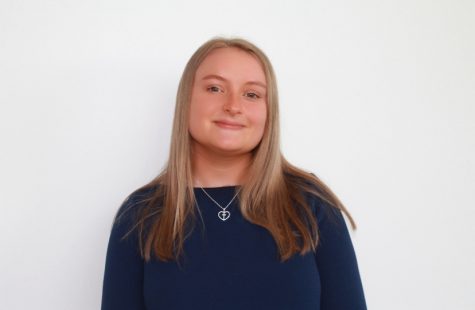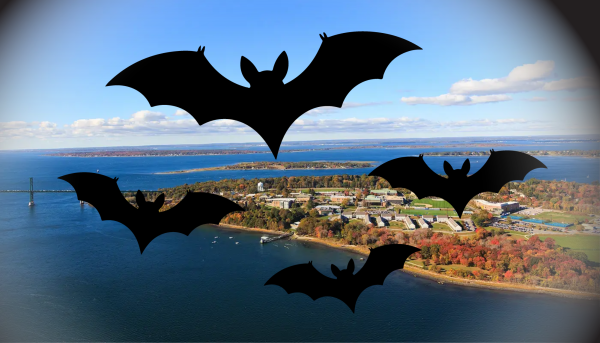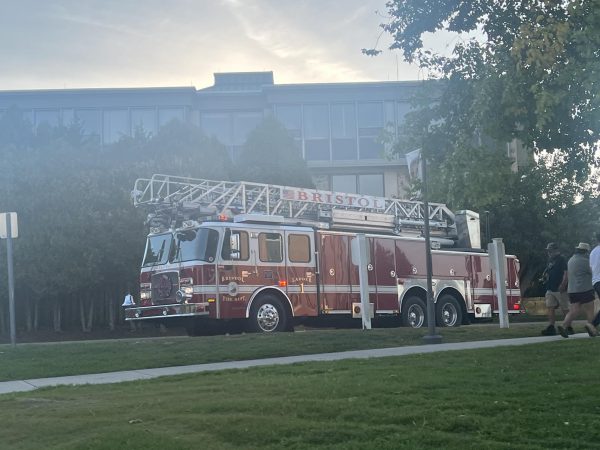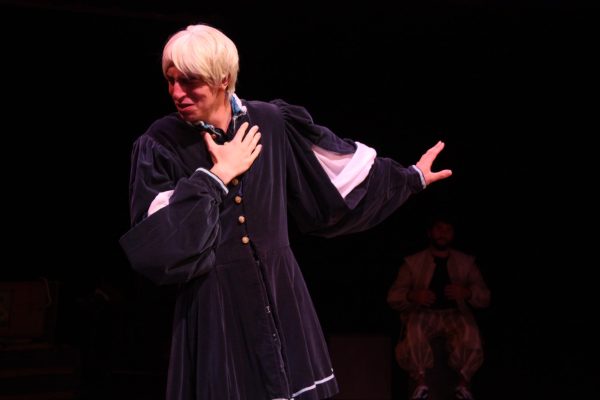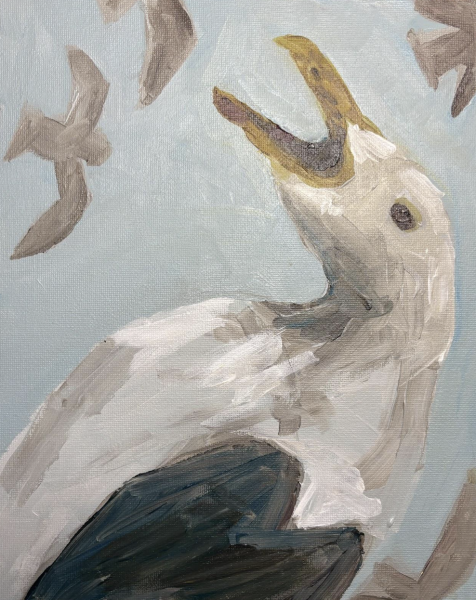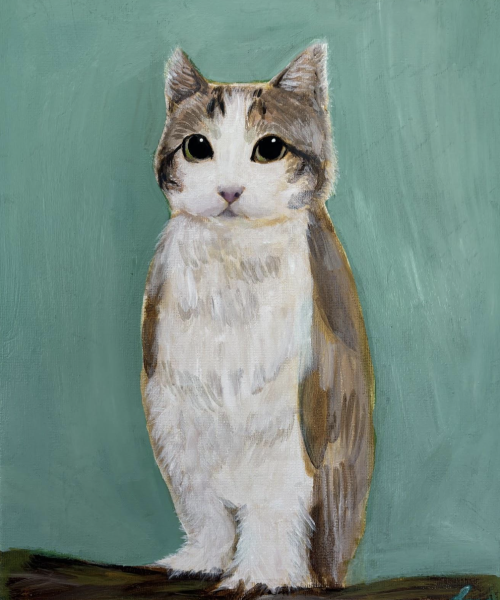Tanaya Winder’s ‘W(hole)heartedly: Harnessing the Fire Within’
Embracing the “heart work” that represents who we are
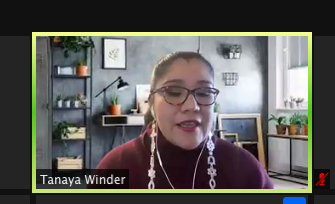
Winder spoke about her past experiences and learning how to work through pain to embrace who we are.
“Words have power…to uplift…or to harm.”
These words from Tanaya Winder (Southern Ute, Pyramid Lake Paiute and Duckwater Shoshone Nations), an award-winning poet, author, singer/songwriter and motivational speaker, exemplify the impact that our words, about ourselves and what we put into the world, have.
On Oct. 13, Winder led a discussion over Zoom titled “W(hole)heartedly: Harnessing the Fire Within,” with a Q&A portion in the last few moments of the talk. This discussion was based on stories told from her perspective and led the virtual audience through acts of re-membering; heartwork was at the forefront of the event as Winder believes this type of work best represents who she is and what she stands for.
Winder focused on personal experiences from her childhood including growing up on the Southern Ute reservation, going to school, attending Stanford as well as her experiences as a teacher, writer, performer and speaker. Honoring your heartwork brings forth a transformation of past experiences that might have been painful or difficult into a beautiful source of inspiration and power.
Winder is a co-founder and the editor-in-chief of “As/Us: A Space for Women of the World,” an independent literary magazine that strives to feature BIPOC women. She also created Dream Warriors Management, an organization that professionally supports indigenous individuals and gives them a space to be seen. Among other accolades, Winder is a published poet and performer who has spoken at and taught at various universities around the country and in Canada.
“W(hole)heartedly: Harnessing the Fire Within” started with Winder stating her purpose for speaking: to encourage others to honor their heartwork through reciprocity and love.
As a BIPOC woman, Winder is aware of the pain that Indigenous people can feel and experience daily. She mentioned the unique traumas that Indigenous children carry with them, represented by the eradication of their values, as they are often seen as something to be civilized. While discussing children being stripped of their home and families, Winder stated, “it is likely that hundreds of thousands were removed from their families.”
Approximately 20,000 children were removed from their homes and placed in boarding schools in 1900; 20 years later, this number tripled. Staggering statistics such as these are not in history books, which Winder acknowledged through her grandmother’s personal experience.
Winder’s grandmother, who is a great source of inspiration for her in the stories that she tells, was in boarding school as a child and shared with her that it was scary and foreign.
“Everything that made you you and was part of your culture…was removed,” Winder said.
Her motivation, particularly to perform through music, is rooted in her grandmother, who loved music and performing.
“Singing is what made me feel most alive,” Winder said.
Through the resiliency she has seen represented in her grandmother’s story, she was inspired to persevere through any hardship because of role models like her.
Alongside being a performer, Winder is a teacher and has led classes at several universities around the country.
“I get the opportunity to teach others how to harness their gifts…teaching is a delicate process,” Winder said.
Her main message and purpose is embracing your heartwork, which can be discovered through the process of answering these questions: Who am I? Who do I belong to? What do I do? What motivates me?
Winder discussed how she designed her life by always trying to be the best, whether that was in school or through extracurricular activities since this was how her mom raised her. She was run by rules and believed they were there to keep her safe and to keep people in line.
“I believed that justice and truth were hand in hand,” she said.
However, Winder soon realized that this was not the case. Hidden beneath this facade were injustices that Indigenous peoples faced every day.
Winder told a story about George, her third-grade best friend who she recalled was stunted by their teacher’s lack of empathy for his situation. She remembered offering to tutor him but the teacher said no: he isn’t smart enough. This teacher did not take the time to learn about Winder’s community which she was supposed to serve.
“Perhaps she couldn’t handle the truth,” Winder said.
One topic that Winder honed in on was that healing was an ongoing process. A counselor at her school, an ally of the BIPOC community, advocated for her to use her voice through words. As a published poet, she finds great hope within words, which hold power.
“Writing was this medicine…I’ll always be grateful for Mr. B. Poetry was a safe space,” she said.
While considering going to school for law, Winder switched to writing. Based on her memories from allies like Mr. B and from her upbringing, spending much time in libraries, she was able to heal from past pains based on her words.
“Hope and help can come from the most unexpected places… poetry and storytelling became that medicine for me.”
She is motivated to help people find a roadmap to their purpose.
“My favorite thing is working with students, communities and writing about love — self love, community love,” she said.
Music and lyrics, as Winder expressed, give her students a lifeline; storytelling has power. She began to write about what she knew and about her people. The epidemic of murdered and missing Indigenous women continues to this day. Her words, such as in her poetry book “Words Like Love,” embraces heartwork that she holds dear and gives these women a place to feel like they belong instead of wanting to be invisible. “Being seen as just humans and to know our worth…the people and community you belong to matters.”
To learn more about Tanaya Winder, click here to visit her website.

